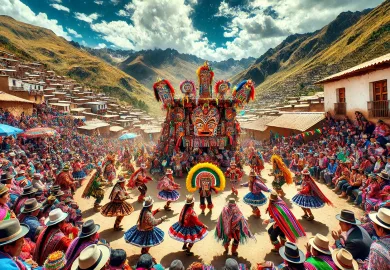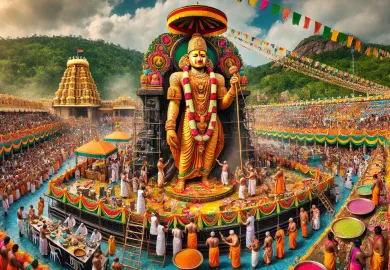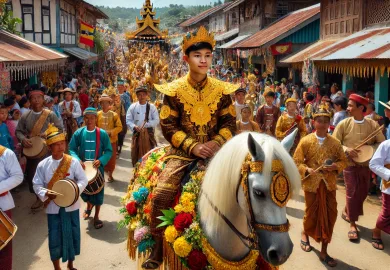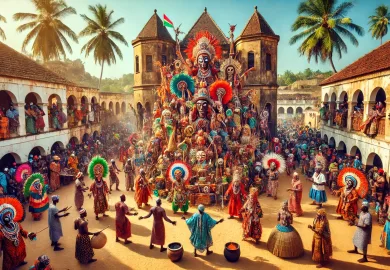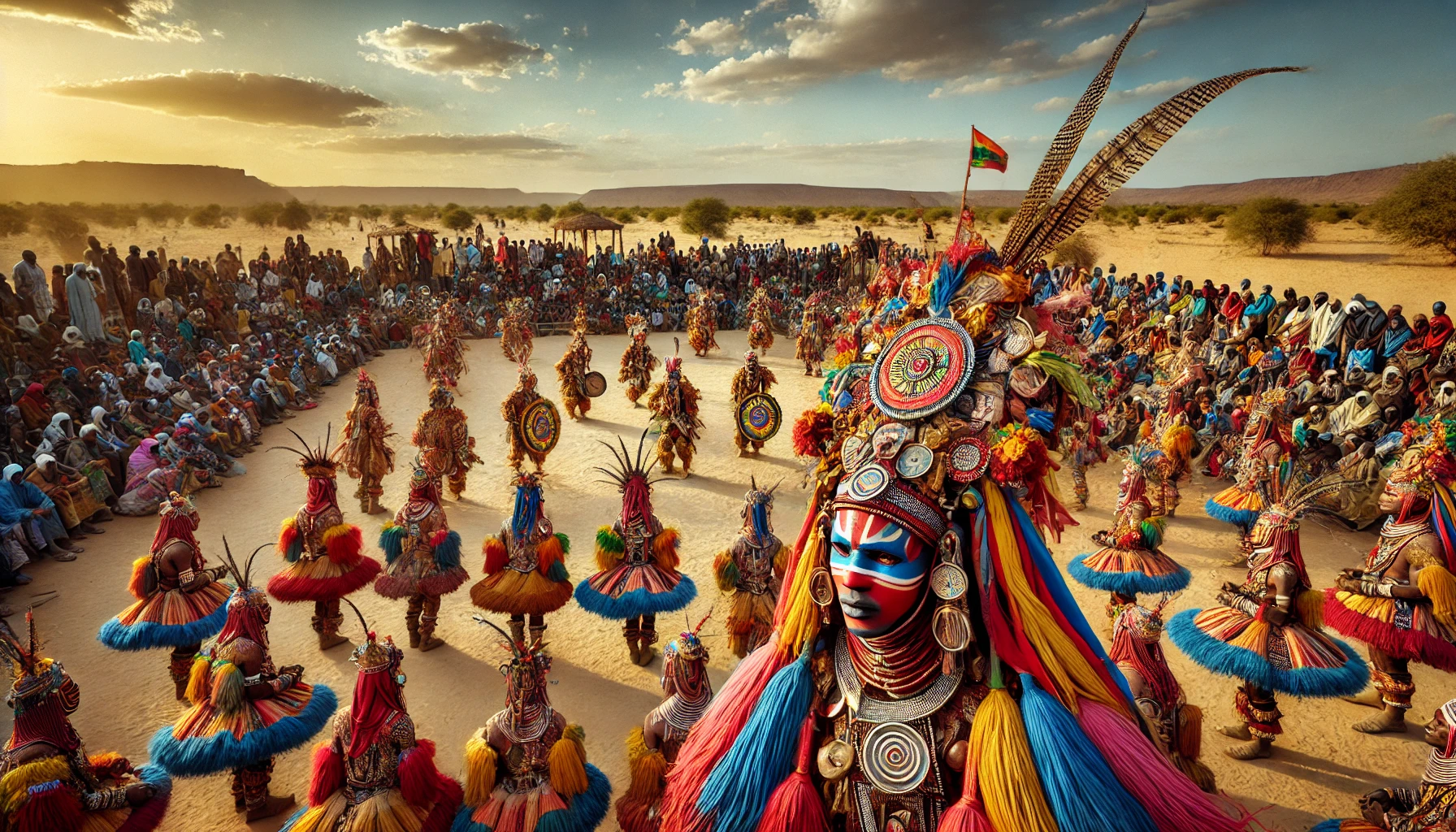
The Gerewol Festival in Niger is one of the most spectacular and vibrant cultural events in Africa. Celebrated by the Wodaabe people, this festival is a captivating showcase of beauty, endurance, and social bonding. The Gerewol Festival offers a unique insight into the rich traditions of the Wodaabe, highlighting their customs, values, and the deep-rooted significance of beauty in their society. Held annually in the Sahel region of Niger, this festival draws visitors from around the world who are eager to witness the colorful and intricate rituals of the Wodaabe people.
The Origins and Significance of the Gerewol Festival
The Gerewol Festival is deeply rooted in the traditions of the Wodaabe, a subgroup of the Fulani people, who are nomadic pastoralists living in the Sahel region of West Africa. The festival is traditionally held at the end of the rainy season, around September, when the Wodaabe gather for this elaborate courtship ritual. The origins of the Gerewol Festival are ancient, with the tradition being passed down through generations.
The festival’s primary purpose is to serve as a courtship event where young Wodaabe men compete in beauty contests judged by young women. These contests, particularly the Yaake dance, allow the men to display their beauty, charm, and endurance. The event is more than just a beauty contest; it is a critical social event that reinforces community bonds, cultural identity, and social cohesion among the Wodaabe.
The Gerewol Festival also serves as a platform for the Wodaabe to celebrate their cultural heritage and pass it on to the younger generation. In a rapidly changing world, the festival is a vital reminder of the importance of preserving cultural traditions and maintaining a strong sense of identity.
The Yaake Dance: A Test of Beauty and Endurance
The highlight of the Gerewol Festival is the Yaake dance, where young Wodaabe men adorn themselves with elaborate costumes, intricate face paint, and ornate accessories. The preparation for this dance is meticulous, as the men spend hours perfecting their appearance to impress the judges—usually young women from the tribe.
The Yaake dance is not just about physical appearance; it is also a test of endurance. The men line up in rows and perform synchronized movements, singing and chanting in unison. The dance can last for several hours, during which the men must maintain their composure, smile, and exhibit their physical strength and stamina. The intense heat and physical exertion make this a challenging test, but the rewards are significant—winning the competition can enhance a man’s status and increase his chances of finding a desirable partner.
The criteria for judging the Yaake dance are specific and include the symmetry of the facial features, the whiteness of the teeth and eyes, and the overall elegance of the dancer’s movements. The women judges, who hold the power to choose the winners, take their role seriously, as their decisions can influence social dynamics within the community.
The Role of Beauty in Wodaabe Culture
Beauty plays a central role in Wodaabe culture, and the Gerewol Festival is a clear reflection of this cultural value. For the Wodaabe, beauty is not just skin deep; it is a reflection of one’s character, health, and social status. The emphasis on beauty is evident in the meticulous preparation that goes into the Gerewol Festival, where participants go to great lengths to enhance their appearance.
The Wodaabe’s concept of beauty includes several key elements, such as height, facial symmetry, and the brightness of the eyes and teeth. Men use natural pigments to create intricate facial designs, which are believed to accentuate their features and make them more attractive. They also wear traditional garments adorned with beads, feathers, and other decorative items that symbolize their wealth and social standing.
In Wodaabe society, beauty is not just an aesthetic quality; it is also associated with moral virtues such as honesty, bravery, and resilience. The Gerewol Festival provides a public platform for individuals to demonstrate these qualities, making it an important event for social recognition and validation.
The Cultural and Economic Impact of the Gerewol Festival
The Gerewol Festival is not only a cultural event but also an important economic opportunity for the Wodaabe people. As the festival has gained international attention, it has attracted tourists, anthropologists, and photographers who come to witness the unique customs of the Wodaabe. This influx of visitors provides economic benefits to the local communities, as they offer services such as guided tours, accommodations, and the sale of traditional crafts and souvenirs.
However, the growing commercialization of the Gerewol Festival has raised concerns among some Wodaabe about the preservation of their cultural traditions. There is a delicate balance between welcoming visitors and ensuring that the festival remains an authentic expression of Wodaabe culture. The community is keenly aware of the potential for cultural appropriation and is taking steps to protect their heritage while still benefiting from the economic opportunities that the festival provides.
The Gerewol Festival also plays a role in promoting Niger as a tourist destination, showcasing the country’s rich cultural diversity and natural beauty. Despite the challenges faced by the Wodaabe, the festival remains a symbol of their resilience and ability to adapt to changing circumstances while preserving their unique cultural identity.
The Gerewol Festival in Niger is a mesmerizing display of tradition, beauty, and endurance. It offers a rare glimpse into the lives of the Wodaabe people, highlighting their cultural values and the importance of community bonds. As the festival continues to evolve, it remains a powerful reminder of the enduring significance of cultural heritage in a rapidly changing world.

